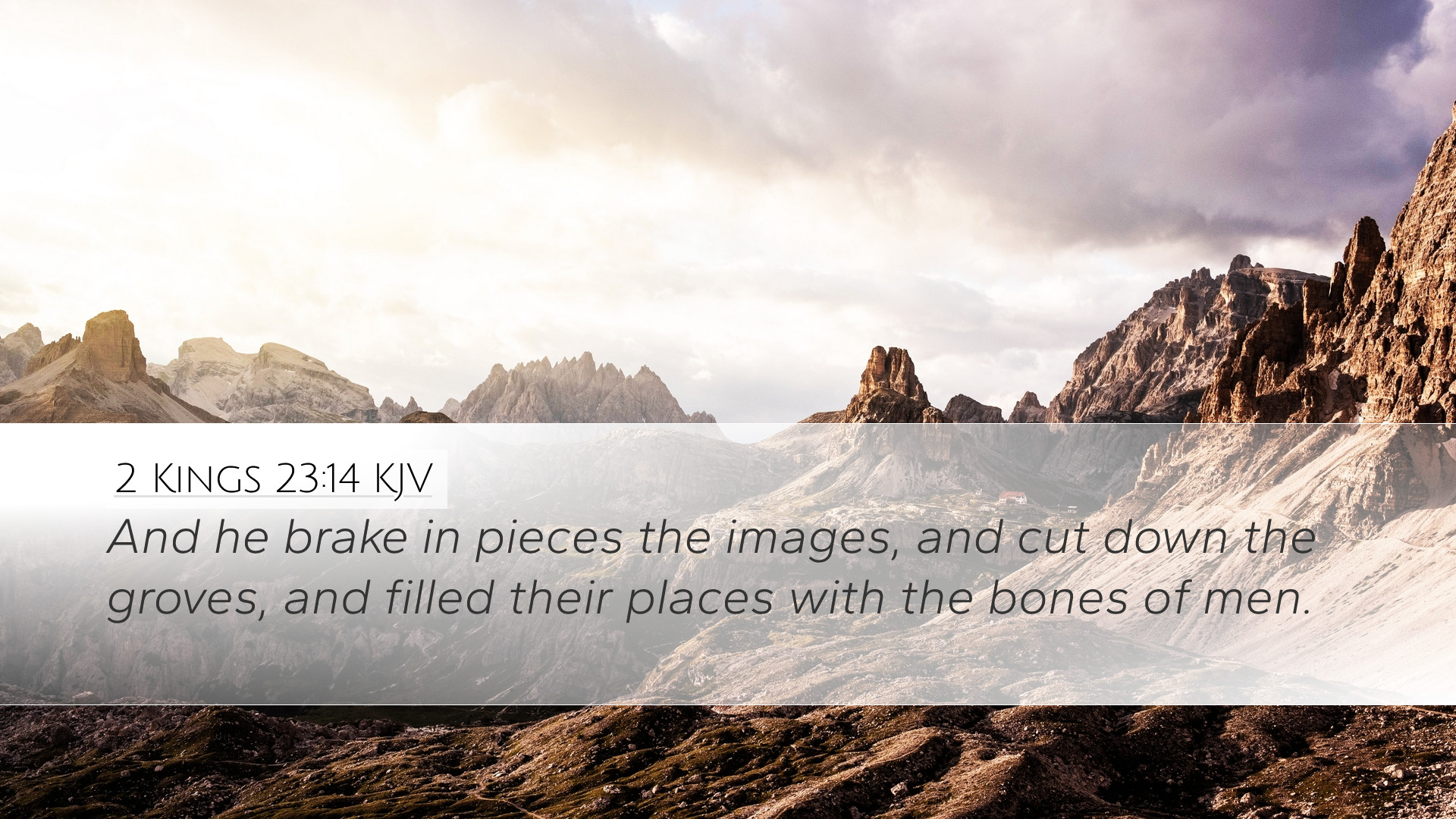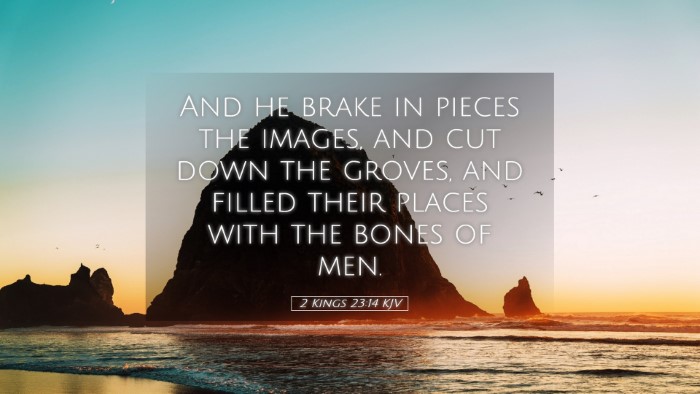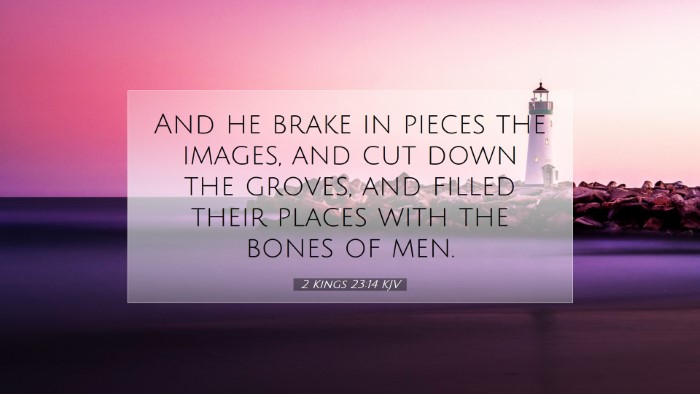2 Kings 23:14 - Commentary and Insights
Verse: “And he brake in pieces the images, and cut down the groves, and filled their places with the bones of men.” - 2 Kings 23:14 (KJV)
Introduction
This verse encapsulates a pivotal moment in the reign of King Josiah, who is noted for his radical reforms aimed at restoring true worship and eradicating idolatry from Judah. The actions described highlight the seriousness of Josiah’s commitment to purging the land of influences contrary to the worship of Yahweh.
Historical Context
Josiah became king at a young age and initiated a series of reforms in response to the discovery of the Book of the Law. This discovery marked a significant turning point for Judah, as it inspired a return to covenant faithfulness. The idolatrous practices referred to in this verse reflect the pervasive syncretism that had taken root in Israel's worship life over the decades preceding Josiah's reforms.
Commentary Insights
Matthew Henry's Commentary
Matthew Henry emphasizes the zeal with which Josiah undertook his reforms. He notes that the destruction of the idols, or "images," demonstrates a tangible ode to the exclusive nature of worship that should be offered to God alone. Henry also elaborates on the symbolic act of filling the sites where idolatry once thrived with the bones of men, as it signifies a clear declaration against false gods, showing that their cults are to be completely eradicated.
Albert Barnes' Notes
Albert Barnes interprets the term "images" as referring to idols of various sorts, which had corrupted the religious practices of the Israelites. He points out that the "groves" were associated with the worship of Asherah, a Canaanite goddess. Barnes highlights that Josiah's actions were not only about physical destruction but also relational in that they sought to turn the hearts of the people back to God. The 'bones of men' signifies the severity of judgment upon those who led the people into idolatry, suggesting that prophets and priests who had fallen into apostasy faced dire consequences.
Adam Clarke's Commentary
Adam Clarke provides an extensive analysis of the cultural and religious practices in Judah at the time. He notes that the term "cut down the groves" indicates a decisive and violent action against the rituals that took place in sacred high places dedicated to foreign gods. Clarke also encourages readers to understand that Josiah's actions were in obedience to God’s commands as enshrined in the Torah, establishing a direct link between covenant loyalty and national restoration. The act of throwing the bones reflects the fulfillment of a curse upon pagan worshippers, which reinforces the seriousness with which Josiah approached his reforms.
Theological Implications
This act of cleansing the land underscores several theological themes:
- Exclusive Worship: The centrality of worshiping Yahweh alone is reinforced, echoing the First Commandment. Idolatry is depicted as not merely a violation but as an affront to the divine relationship.
- Holiness and Judgment: Josiah’s actions reflect God’s call to holiness, emphasizing that obedience to His commands brings blessing while disobedience incurs judgment.
- Leadership and Transformation: Josiah serves as a model for leaders who are called to lead their people back to the truth of God's Word. His reforms show that true leadership requires both action and a heart attuned to God's will.
Practical Applications for Today
The impact of 2 Kings 23:14 extends beyond its historical context, offering valuable lessons for contemporary believers:
- Personal Reflection: Individuals are encouraged to examine their own lives for idols that may have crept in – whether materialism, relationships, or even desires contrary to God's will.
- Community Accountability: Faith communities can take initiative, much like Josiah, to address issues of idolatry, unfaithfulness, and cultural practices that contradict scriptural teachings.
- Renewal Movements: The actions of Josiah remind believers of the constant call for revival and renewal in their spiritual practices, always directing hearts and minds back to Scripture.
Conclusion
2 Kings 23:14 highlights the seriousness with which King Josiah approached his reformative work and demonstrates a historic example of turning back to God with genuine commitment. Through the insights gleaned from the public domain commentaries, we can better appreciate the depth of Josiah’s actions and draw applicable lessons for today’s theological, pastoral, and personal contexts.


